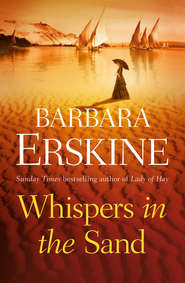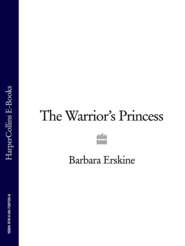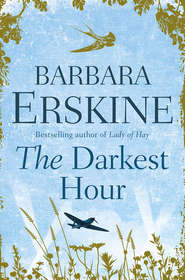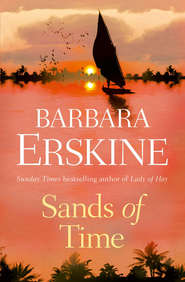По всем вопросам обращайтесь на: info@litportal.ru
(©) 2003-2024.
✖
The Ghost Tree: Gripping historical fiction from the Sunday Times Bestseller
Автор
Год написания книги
2019
Настройки чтения
Размер шрифта
Высота строк
Поля
‘Well, half-brother. And almost certainly, no. He will have to take a DNA test to prove it.’
‘Of course.’ She frowned. ‘I hadn’t thought of that. That will prove he isn’t Dad’s son.’
There was a moment’s silence. ‘Or that he is.’
‘Right.’ Finlay glanced towards the window. ‘Let’s see if he’s gone. If he has, I’ll load up my car with anything you want to save right now before he has a chance to come back. You should also tell Reid that he went through your mother’s belongings, and damaged them, and you suspect he may have taken valuables away. For instance,’ he paused thoughtfully, ‘what about jewellery? Or family silver? Those pictures you mentioned. You showed me the ring and the little miniature, but what else did she have?’
‘There was a jewellery box. I can’t really remember what was in it, but it lived on her dressing table. I don’t think Dad made her lock that away, but she never wore anything out of it as far as I remember. That’s not up there.’ She gave a miserable little wail. ‘Oh, Finlay! If he has taken anything I’ll never know.’
‘We’ll sort it, Ruthie, don’t you fret.’
They packed up all the most sentimentally precious things and locked them in the boot of his car, then he helped her search her father’s desk for his chequebook and bank cards, things that it had not even occurred to her to look for, and which were conspicuous by their absence. He stood by while she rang the bank and reported their theft, then he took her out to lunch.
When he finally drove away that evening he tried to persuade her to go with him, but she refused.
He didn’t argue. ‘OK. Good for you. Stick to your guns and stay safe and call me at any time of day or night if you need me.’
She watched him drive away then closed the door and bolted it before wandering back towards the kitchen.
The house was dark and very quiet now that he had gone. As she reached for the light switches by the kitchen door she stopped suddenly in her tracks. She had heard a noise from the kitchen, she was sure of it. She held her breath, listening. Had Timothy managed to find a way in round the back? The silence stretched out and then she heard it again. It was another second before she realised with a flood of relief that it was the sound of the tap dripping slowly into the sink. She took a deep breath and brought her hand down heavily on the switches, lighting every corner of the kitchen. There was no one there.
Of course there was no one there.
For several seconds she stood still as slowly her heartbeat returned to normal then she walked over to the back door and checked the locks. No one could have come in that way. Picking up her laptop, she tucked it under her arm. The wave of loneliness and despair that swept over her was overwhelming.
In the end she turned off the lights and climbed wearily to her bedroom, wishing she had taken up Fin’s invitation and gone home with him. Below, in the darkness, the house was very empty. Clutching her teddy bear in her arms she climbed into bed and lay there in the dark, staring up at the ceiling.
7 (#ulink_753257f1-b3a1-54d3-a788-f6ad04c746b5)
Timothy’s sister, April, was waiting for him in the White Hart, a glass of shandy before her on the table, a bottle of lager for him. She looked up as he walked in. ‘Did you get in?’
‘Nope! She’s changed the locks.’
‘I told you she would. You should have taken everything while you had the chance.’
He sat down opposite her and reached for the bottle, twisting off the cap. Taking a large gulp, he wiped the foam from his lip with his sleeve. ‘We’ve got most of the valuable stuff anyway. Do you want to get me another one?’
‘Not particularly.’ She was very like him to look at; the same skin, the same colour of hair, but while his eyes were brown hers were hazel. She studied his face closely. ‘You look rattled.’
‘There was someone else there. A big bloke. Some kind of minder.’
She scowled. ‘Never mind. You don’t need to go there again. We got what we came for: the old man’s cash, jewellery, silver. Now you can sit back and wait for the house to fall into your lap.’ She took a sip from her glass.
He noticed the packet of crisps at her elbow and reached across for it. ‘But she’s obviously gone to the solicitor.’
‘Of course she has. He will have contacted her the moment he received the new will.’
‘Doesn’t it worry you?’
‘No. It’s your word against hers. She hasn’t seen her father for years.’
‘What about the DNA?’
She gave a grim smile. ‘You got it, didn’t you? The swab from the old man’s mouth.’
Timothy grimaced. ‘Disgusting.’
‘Proof!’ She smiled at him. ‘Just don’t lose it.’
She reached into her pocket. ‘I’ve been going through some of the stuff you brought back.’ She brought out a small cotton bag and tipped half a dozen rings into the palm of her hand.
‘Don’t!’ Timothy let out a cry of alarm. ‘For God’s sake, April. Someone will see.’
‘Shut up, you numpty. You’re just drawing attention to us.’ She rattled her two hands together then opened them with a smile of triumph as if she had produced the rings out of thin air. ‘These are nice. Gold, rubies, diamonds. Victorian, I should say. Not worth a lot these days, but better than a slap in the face. Eighteen carat. They’ll melt down well if nothing else.’
They both looked down at her hands. She reached for one of the rings and slid it onto her little finger. It wouldn’t go over her knuckle. ‘They must have had tiny hands in those days,’ she said critically. She shivered suddenly and plucked the ring off. ‘It doesn’t feel right. Been on a dead person, I reckon. That’s why I hate second-hand stuff.’ She tipped the rings back in the bag and pulled the cord round its neck to tighten it. ‘Best move these on as soon as.’
Timothy frowned. ‘We can’t risk it. Not yet. Ruth might be able to identify it. Just sit on it for a bit. All of it.’ He helped himself to a handful of crisps. ‘What is it? What’s wrong?’ She was staring down at her hand, lying on the bag.
She shuddered visibly. ‘I told you. Someone walked on my grave.’
He laughed. ‘Stupid mare. I tell you, if you want something spooky, it’s that house. It gave me the creeps, there on my own with that old boy. He talked to people I couldn’t see. He thought his wife was there with him. He told me she didn’t like me. He told me to go away. Then he thought there was someone else there. Her grandfather or someone. He was scared of him. Terrified. He kept saying he was sorry. What?’ He realised April was staring at him, her eyes wide with horror.
‘I’m not handling these.’ She pushed the bag of rings away from her. ‘There’s something bad going on with these. I reckon we should bail. Go somewhere else. I do not want to be landed with a haunted house.’
‘Stupid!’ Timothy glared at her witheringly. ‘Not after all the trouble I’ve been to. We’ve done the hard bit now. As you say, we’ve just got to wait.’ He reached out for the bag and stuffed it into his pocket. ‘I need a proper drink.’ He climbed to his feet and went over to the bar. ‘Two large gins,’ he said to the girl behind the till, ‘and two hot pies when you’re ready.’
Ruth stood looking up at the great crown steeple of St Giles’ cathedral. It had been so vivid in her dream, the silhouette against the stormy evening sky, the small boy alone in the crowded street. She shivered. It had been uncannily real.
Number 26 was claustrophobic now, and lonely without her father there. Or Fin or Hattie. She hadn’t been able to stand it this morning when she woke. A walk had seemed a good idea, especially now the locks had been changed and she wasn’t afraid Timothy would sneak in behind her. She hadn’t planned to come here to the Royal Mile, but that was where she ended up, standing staring at the place where Thomas had seen a murder. And a ghost. And it was her Thomas, her five-times great-grandfather, she was sure of that now. The names fitted, the names she had heard shouted out in her other dream, the dream of three excited, happy boys on holiday.
She looked round. This iconic street, stretching along Edinburgh’s spine, from the castle to Holyrood Palace, was similar to her fleeting memory, but the booths had gone now of course; the images in her dream were like old photographic negatives, the buildings taller, more crowded, the people wearing darker clothes, the women in long skirts and shawls, carts, horses. The parliament building, and the Old Tolbooth near it, shadowy backdrops to the drama in the street.
Slowly she walked on. Thomas had lived at the top of a lofty tenement in somewhere called South Gray’s Close. She glanced at the address on the piece of paper in her hand. She had looked it up on the Internet that morning. It was next to the Museum of Childhood. The actual building in which he had lived had long ago disappeared, it seemed, but there had been a plaque there once, marking the place where Tom and his brother Henry had been born. She came to a halt outside the entrance to the close. There was the rounded archway. Did she remember that from her dream? She thought so, but more than that, she wasn’t sure. Everything had been dark then, save for the warm rooms briefly lit by the setting sun before the black rain clouds had swept in. There was graffiti now where, presumably, the plaque had once been. The memory of Thomas and his family in Gray’s Close had vanished with her dream.
On her return to Number 26 Ruth went back to her slim file of notes and the Internet. She moved the cursor across to the portrait of Thomas and studied it carefully. He had short wavy dark hair and deep-set piercing eyes. The reproduction was poor; it was dark and hard to make out the detail. She clicked on it. The picture had been painted by Thomas Lawrence in 1802, when Thomas was fifty-two years old.
Sitting back in her chair she thought for a moment, then she rummaged in the zipped pocket of her bag for the portrait miniature. Was it him? The face staring out at her was very different to the arrogant, powerful, quite modern face on the screen. For a start the man in the miniature was wearing an old-fashioned white powdered wig; he was half smiling and he appeared to be very young. She narrowed her eyes, holding it under the light. The glass reflected badly and the picture was, she realised now, very crude in its execution. She dipped back into her bag to bring out the locket. The lock of hair could have belonged to anyone. A woman? Someone from another family altogether? She ran her finger across the glass. She badly wanted to touch the hair. The small oval of glass which held it in place felt loose. She squinted at it, angling it this way and that under the light. Could she prise it off? And if she did, would the hair reveal in some mysterious way the identity of its owner?
She picked up the miniature again, wondering why she assumed everything she had found was to do with that one man, as if he was the only ancestor her mother had. But that was her father’s fault, she realised. He was the one with the obsession. It was as if the name, the title, had got under his skin as a personal insult.
Whoever the lock of hair and the miniature had belonged to they had been very precious. With a shiver she dropped them on the table. The thought that the touch of that hair might directly link her to the person from whose head it had been taken felt suddenly like witchcraft.
Thomas
It was the sennachie who first told me I was special. He had come to teach my eldest brother, David. The sennachie is the holder of the family story, the keeper of the genealogy, the remembrancer of all that makes a clan or a family great. We, the Erskines, he said, are both a Highland family and a Lowland clan. That is strange and special and he told us that our name comes from the skein, the little knife that appears on the family crest.
I was there, listening, only about five years old at the time, as the old man talked to my brother of traditions and legends of the earls of Buchan and of their forefathers the earls of Mar, going back to time before time.











